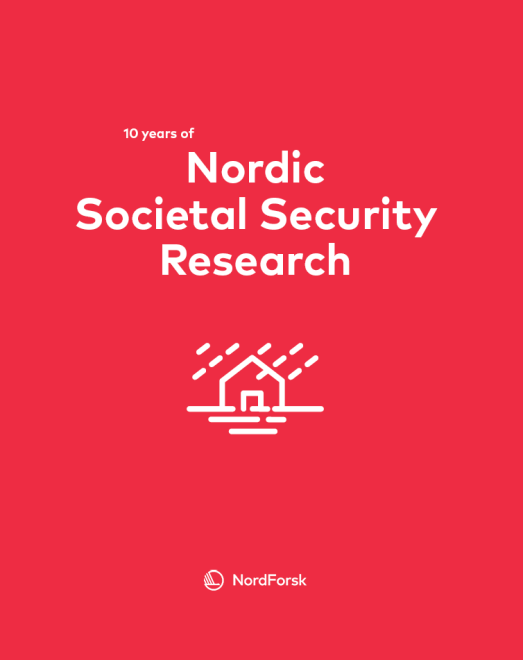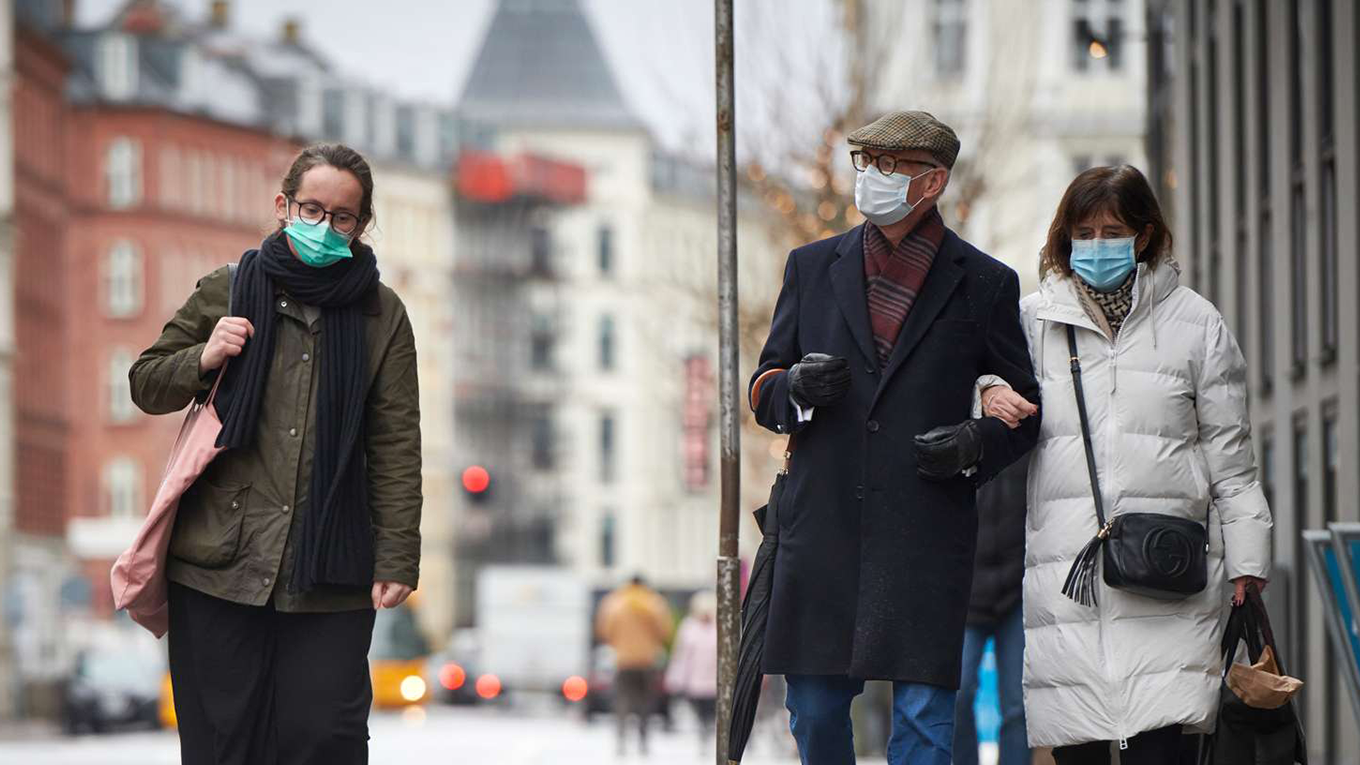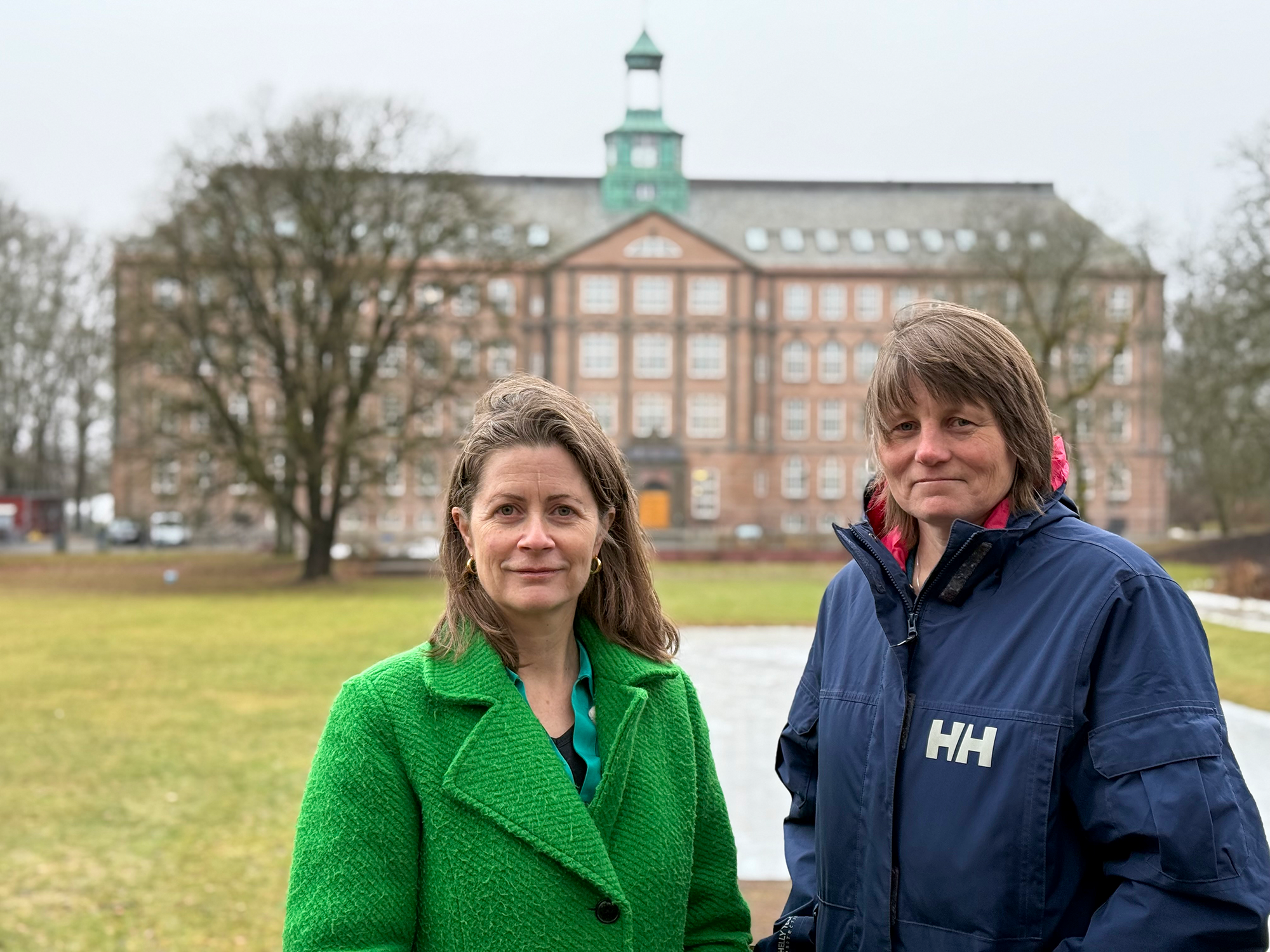Nordic research
on societal security
Societal security is growing in importance due to the rapidly evolving political, environmental and security challenges that we are experiencing globally. In the Nordic region, various threats and crises have propelled societal security in the forefront of Nordic co-operation. NordForsk has several initiatives on societal security research designed to generate new knowledge for the safety and security of the Nordic countries' inhabitants.
Four ongoing research initiatives on societal security
- The Nordic Disinformation Resilience Network
- Reinterpreting Sector Responsibility in Nordic Crisis Management after COVID-19 (RESECTOR)
- Tracking of Antimicrobial Resistant Genes in Environmental reservoirs in the Nordic Countries
- Fair and Resilient Societies – The Nordic Model into the future?

10 years of Societal Security Research
The report highlights a decade of research and collaborative achievements in addressing the Nordic region's security challenges.
Families with children play a key role in ensuring resilient societies
We are living in a time of multiple crises, and now researchers want to investigate the resilience of Nordic families with children. If families with children are doing well, it strengthens the resilience of society, according to the researchers.

Universities must step up when major health crises occur
When a crisis strikes, universities play a crucial role, according to a new Nordic network. The network has an all-hazards perspective on health crises and has a Nordic perspective in its work. It focuses in particular on two thematic areas: pandemic preparedness and response, and extreme weather events and climate change.

Pandemic preparedness: Nordic models can predict the spread of infection
Pandemics arise suddenly and require immediate action from decision-makers. A Nordic research network develops models that can estimate how the infection will spread, thereby supporting rapid response during a future pandemic.

Three years after the pandemic, we still don't know if the restrictions were justified
During the pandemic, we experienced the greatest encroachment on our freedom since the Second World War. Now Nordic researchers are investigating whether the measures were proportionate.

Disinformation is now part of mainstream politics
There was a time when disinformation and conspiracy theories mostly were associated with uneducated and marginalized people. Today, we are witnessing a shift, and it has now become a strategic tool also for Nordic mainstream-politics.

Public opinions are crucial when implementing climate initiatives
New research project explores how the Nordic welfare model, known for its combination of economic efficiency and social equality, can ensure resilience and preparedness in a time of global climate challenges.

The pandemic: The economy was put in a freezer and the crisis didn't materialise
During the pandemic, the authorities introduced support programmes for companies to avoid laying off employees. Some called it a sleeping pillow, others a necessary measure. The subsidies may have helped the Nordic countries avoid an economic downturn.

Political top-down management trumped Nordic crisis management principles
During the pandemic, the Nordic crisis management principle of sector responsibility was put to the test. But what was behind the challenge to the sector responsibility principle? A Nordic research project will try to answer.
